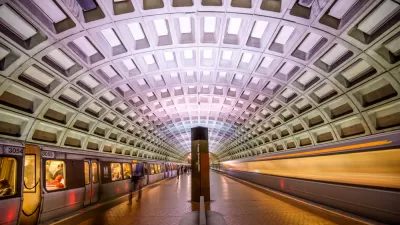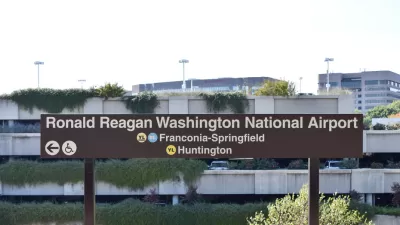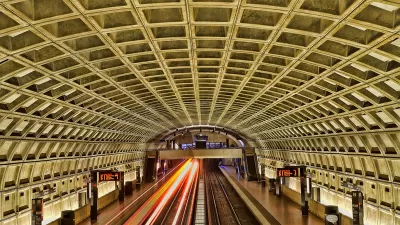Platform improvements will close down another rail transit route in the D.C. region for three whole months.
"[D.C.] Metro’s entire Blue Line is being shut down for more than three months starting Saturday," reports Matt Blitz.
"The closing of the Blue Line, which runs through parts of Arlington, is due to platform reconstruction work being performed at the Arlington Cemetery station. Additionally, work is being done at the Addison Road station in Maryland." Service is expected to be restored on the Blue Line on May 23. In the meantime, a shuttle bus will replace service between the Rosslyn, Arlington Cemetery, and Pentagon stations during the project.
According to Blitz, the Blue Line work is part of a larger project to reconstruct, modernize and update station platforms throughout the system. The video above provides more details on the systemwide platform improvement project.
It's just the latest in years of service closures by Metro in recent years. Memories of the system closures for the SafeTrack repair program that affected service from 2016 to 2018 are still fresh. Station improvements also closed down portions of the Orange Line and the entire Silver Line over the summer in 2020.
FULL STORY: Metro’s Blue Line To Shut Down For Three Months Starting Saturday

Trump Administration Could Effectively End Housing Voucher Program
Federal officials are eyeing major cuts to the Section 8 program that helps millions of low-income households pay rent.

Planetizen Federal Action Tracker
A weekly monitor of how Trump’s orders and actions are impacting planners and planning in America.

Ken Jennings Launches Transit Web Series
The Jeopardy champ wants you to ride public transit.

Crime Continues to Drop on Philly, San Francisco Transit Systems
SEPTA and BART both saw significant declines in violent crime in the first quarter of 2025.

How South LA Green Spaces Power Community Health and Hope
Green spaces like South L.A. Wetlands Park are helping South Los Angeles residents promote healthy lifestyles, build community, and advocate for improvements that reflect local needs in historically underserved neighborhoods.

Sacramento Plans ‘Quick-Build’ Road Safety Projects
The city wants to accelerate small-scale safety improvements that use low-cost equipment to make an impact at dangerous intersections.
Urban Design for Planners 1: Software Tools
This six-course series explores essential urban design concepts using open source software and equips planners with the tools they need to participate fully in the urban design process.
Planning for Universal Design
Learn the tools for implementing Universal Design in planning regulations.
Heyer Gruel & Associates PA
Ada County Highway District
Institute for Housing and Urban Development Studies (IHS)
City of Grandview
Harvard GSD Executive Education
Toledo-Lucas County Plan Commissions
Salt Lake City
NYU Wagner Graduate School of Public Service





























